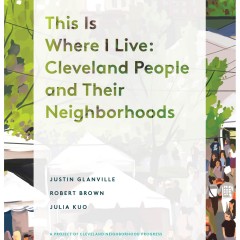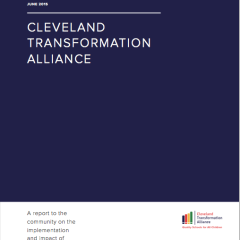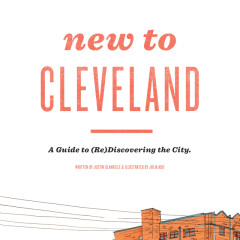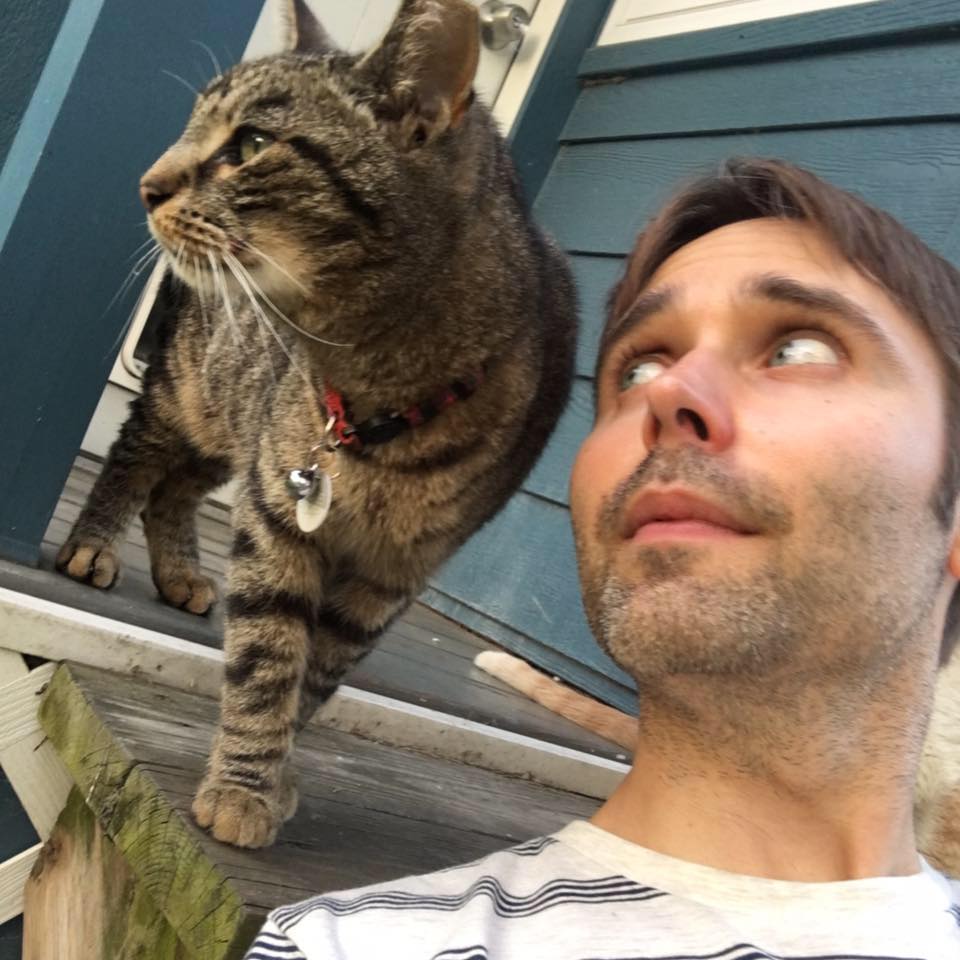When Tim Nevits gave up being car-free and bought a car, his family rejoiced.
“I’m eccentric enough as it is,” says the fortysomething, stray-cat-adopting, tiny-house-dwelling computer programmer. “To them it was like I was coming back into the fold from one of my more eccentric indulgences.”
He’d been living without a car for two and a half years by then. Two and a half years of riding buses and trains — and, every once in a while, his push scooter. Two and a half years of puzzled or worried looks from friends and family, who’d often try to force car rides on him despite his assurances that he was fine taking transit.
For Nevits, though, it was all worthwhile. He’d grown up in Northeast Ohio but spent 10 years living in New York City, an experience that made him a diehard transit devotee.
“To me, taking transit is just a more forward, community-minded way of thinking,” he says. “That’s one of the things I love about New York: You have people from all economic strata who see each other every day because everyone takes the train. You’re all in it together.”
When he returned to Cleveland, he made choices that allowed him to continue that lifestyle. He moved to Edgewater and then North Collinwood, city neighborhoods well served by transit, with shopping and other amenities in walking distance.
His job was in Downtown Cleveland, a regional transit hub. He bought the aforementioned scooter, which he used for quick trips to the library or coffee shops. (He used Lyft and Uber only sparingly, about once or twice a month.)
Nevits liked not having to pay for buying and maintaining a car, never having to worry about breakdowns or accidents or parking.
A sense of empathy
Most of all, he treasured the sense of community and connection that he says transit provided.
“It gives you a sense of empathy,” he says. “You’re seeing people and neighborhoods you might otherwise never see. You can understand the difficulties that people have in life, and the ways they face them.”
He’d see elderly people running to catch the bus for doctors’ appointments. Moms and students making multiple transfers to get across town to shopping or school. Fellow commuters, like him, huddled against the cold at bus stops.
His transit-taking life felt complete, rich — if way outside others’ expectations. In New York, riding public transportation was considered “normal” for his race and socioeconomic class (white, professional). In Cleveland, it most decidedly was not.
“You tell people you take the bus and you don’t have a car, and that becomes a mark against you,” he says. “You fall into a different box that’s already established in their mind. Maybe you can’t hold a job or you’re mentally unstable or there’s something else wrong.”
Among transit riders, he was far from alone in taking the bus by choice. The Greater Cleveland Regional Transit Authority estimates that between 35 to 40 percent of its approximately 150,000 daily riders use transit by choice rather than necessity. But most of them still own cars. In a region where only 4 percent of households are carless — many of them because they can’t afford one — middle-income, car-free Nevits was part of a tiny minority.
That all changed last summer, when he got a job offer in the far east suburbs. It was an opportunity he couldn’t pass up.
He looked into what the bus commute would entail. It wasn’t pretty: an hour and a half journey, including a transfer, to get to the bus stop closest to the job, followed by a 45-minute walk.
Soon enough, he was emailing friends for car-buying tips.
A huge hunk of metal
On a unseasonably warm January afternoon, a few months into owning a midnight-blue Honda Fit, Nevits pushes a shopping cart full of groceries across a supermarket parking lot. Suddenly he looks up.
“Where’s my car?” he asks, laughing.
He gazes around for a few seconds, then veers in another direction.
“See, I’m not used to this responsibility of having to figure out where I parked,” he says, cart rattling. “The bus would just drop me off and I’d know exactly where it was going to come get me. I miss that.”
He loads the groceries into his trunk, then swerves onto Lakeshore Boulevard for the short drive back home.
Responsibility: That, he says, has become the main theme of owning a car.
“I’m responsible for this huge hunk of metal that’s shuttling me down the road,” he says, eyes scanning the asphalt ahead of him. “At any moment another driver could try to get in my lane or I could accidentally try to get in theirs. That’s a huge responsibility that I don’t think people take as seriously as it is.”
These days, when he does occasionally ride the bus, he says he appreciates having that responsibility lifted, going back to his former life of being a people-watching, news-reading transit rider.
Those rides are rare now, though. As earnest as his intentions might have been to keep riding transit in addition to driving, they’ve remained mostly that: intentions.
“It happens overnight,” he says. “Once you have a car, you don’t take the bus. It’s almost always more convenient and faster to take the car.”
Still, there’s a lot about owning a car that makes him feel grateful.
“The worst thing about the bus for me was waiting in the cold, and I haven’t been nearly as cold this winter as previous ones,” he says. “I’m grateful for that. I’m grateful I can be there more for my family and friends. I’m grateful for more time.”
His new coworkers, meanwhile, think he’s only about half as odd as they might have otherwise. They still do double-takes when they find out he lives in a 130-square-foot tiny house in a mobile home park near Euclid Beach — “That’s really your only house? Really?” his incredulous boss has asked a few times — but at least he doesn’t have to explain his car-free lifestyle anymore, or fight with people who want to give him rides.
As he pulls back into his driveway, he prepares a bag of groceries for an elderly neighbor who’s fallen on hard times.
He and the neighbor used to wait for the bus together on cold mornings on their way to work. Now, with a disabled son recently moved home and a route cut that turned her 40-minute commute into 90 minutes, she felt forced to give up her job and struggles to pay for the basics.
The facts of her life are ones Nevits might never have learned but for their shared status as bus riders — gone now, but far from forgotten.














